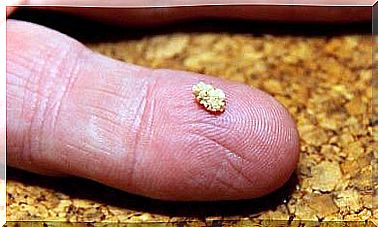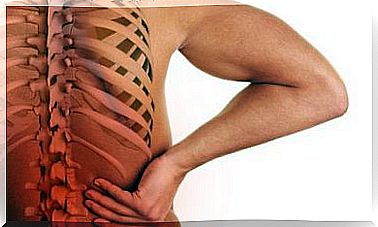Things Worth Knowing About Aerophagia
The unwanted swallowing of air is very common in infants and often leads to gas and abdominal pain.

As Aerophagia refers to a physiological phenomenon that is brought about by the swallowing of air that enters the gastrointestinal tract, leading to complaints. It is a digestive complaint that only causes slight disturbances, but can be uncomfortable.
This allows air, for example, to escape via the upper airways, which leads to a surgeon. However, this should not be confused with gastroesophageal reflux, which has similar symptoms.
The Aerophagia can by the presence of other pathologies, such as dyspepsia or distension, be worse. For young children who are breastfed or bottle-fed, is a relatively common complaint that can cause colic, among others.
Causes of Aerophagia

The most common cause of aerophagia is poor diet. The excessive consumption of sugared, carbonated beverages and various foods, such as industrial baked goods, chewing gum, etc. are responsible for this.
Bad eating habits can also lead to this. Many eat too quickly and swallow air that gets into the digestive tract.
In addition, stress and anxiety can also lead to it. It also particularly affects people who do not properly coordinate swallowing with breathing. Therefore, very often people with mental pathologies suffer from aerophagia.
Symptoms
Aerophagia manifests itself with a feeling of heaviness in the stomach, the feeling of being bloated and indigestion. Belching, or flatulence, is the natural way to alleviate this.
Symptoms include:
- Abdominal distension caused by gas. The excess of air in the digestive system leads to a bloated stomach.
- Abdominal pain, which in some cases can also occur in the lower part of the sternum, as the air presses on both the stomach and the heart. The pain can in some cases be mistaken for angina pectoris.
- Aerophagy can also produce noises in the intestines.
- Belching and meteorism with no odor.
When is aerophagia diagnosed?
If the belching and other complaints occur repeatedly, i.e. several times a week, and are uncomfortable, the amount of air swallowed is checked.
It is important to rule out orange pathologies. These include, for example, diseases of the upper digestive tract, poor digestion of carbohydrates, excessive bacterial growth or a mobility disorder.
Prevention against aerophagia
As a precaution , we recommend a healthy diet, slow chewing and avoiding certain foods that have gastric effects. These include, for example, carbonated soft drinks, confectionery, and chewing gum.
If the bloating is due to stress, the problem needs to be tackled at the root: Try to avoid stress through relaxation exercises, exercise, and good planning. Usually, symptoms of aerophagia go away spontaneously once the causes are corrected.
treatment

Treatment for aerophagia involves a number of measures that should be followed:
- Eat and chew slowly: Many people devour large bites without properly chewing the food. Among other things, this leads to weight problems and poor digestion. To prevent aerophagia and other ailments, eat slowly and chew each bite well. Don’t forget: digestion begins in the mouth!
- Avoiding Lush Food: Eating a healthy diet is essential to preventing aerophagia. Avoid lavish and very spicy foods. You should also say goodbye to carbonated soft drinks. Eat a healthy diet with lots of fresh vegetables, fruits and also fish.
- Chamomile tea and other natural remedies: Various natural remedies can be very helpful in relieving the unpleasant discomfort. We recommend the classic chamomile tea, which is excellent for flatulence.
- Drink enough water: Replace unhealthy drinks with water to keep your body hydrated.
- An abdominal massage also has many advantages. This will relieve unpleasant digestive problems and reduce stress at the same time.









